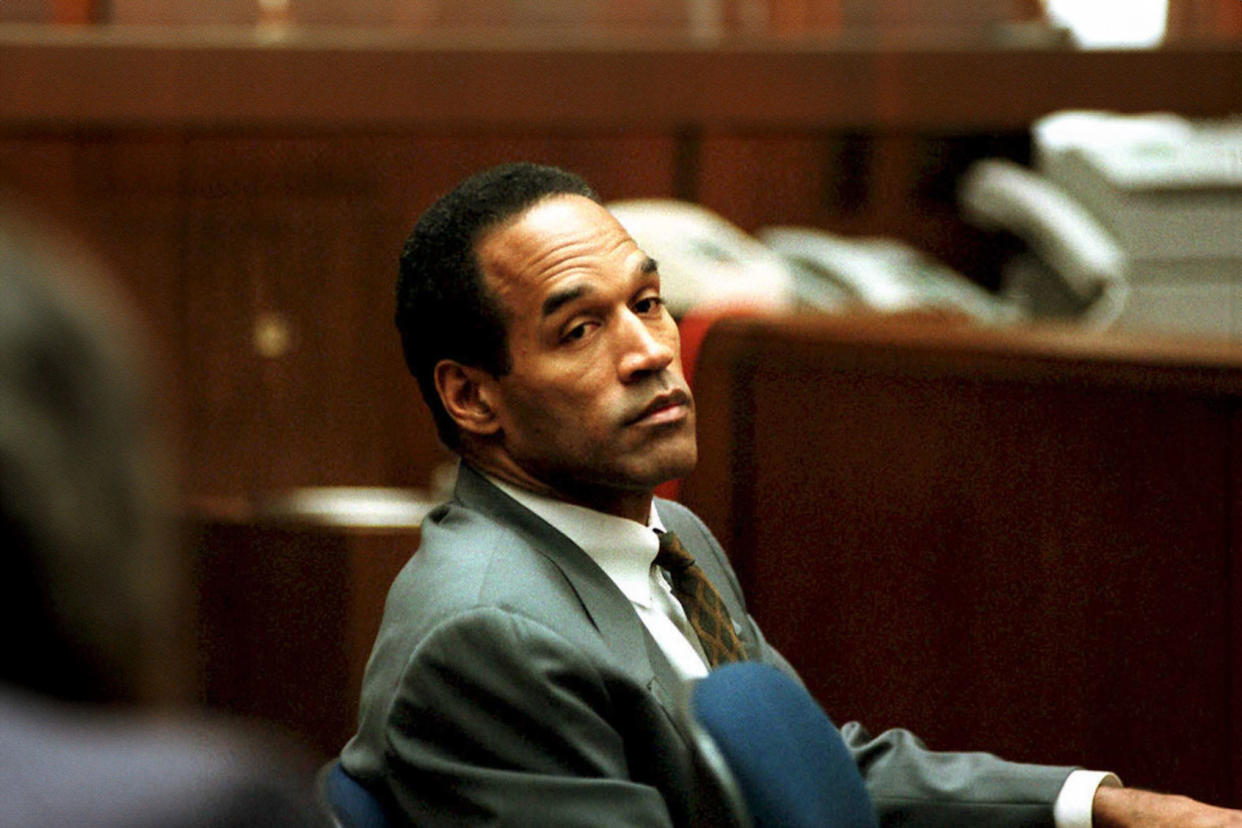O.J. Simpson dies at 76 after a battle with cancer, family announces

O.J. Simpson, the All-American football legend who was accused of and ultimately acquitted of killing his ex-wife and her friend, died on Wednesday, according to an announcement from his family. He was 76. On Thursday morning, Simpson's family posted a statement on social media, saying, "On April 10th, our father, Orenthal James Simpson, succumbed to his battle with cancer."
The statement continued, "He was surrounded by his children and grandchildren. During this time of transition, his family asks that you please respect their wishes for privacy and grace."
Known as "The Juice," Simpson was a prolific college athlete, winning the Heisman Trophy in 1968 when he played at the University of Southern California. He seamlessly transitioned into a record-breaking pro-football career, playing in the NFL for teams like the Buffalo Bills and San Francisco 49ers. As a star player in the '60s and '70s, Simpson was eventually inducted into the Football Hall of Fame, clenching the title as one of the greatest running backs of all time.
Simpson's star became so bright he even dabbled in acting. He snagged roles in "Roots," "The Klansman" and "The Towering Inferno." In a rags-to-riches story, Simpson had cemented himself as a celebrity athlete.
Then, in 1994, Brown's ex-wife Nicole Brown Simpson and her friend Ron Goldman were brutally murdered and Simpson was considered a prime suspect. The case became a pop culture sensation after Simpson attempted to evade arrest from first-degree murder charges by fleeing in a white Bronco, resulting in a now infamous 60-mile car chase through Los Angeles and Orange Counties.
The trial was eventually labeled by many as "the trial of the century" and served as one of the first widely sensationalized "true crime" cases in 20th century America. The case sparked critical conversations on celebrity, wealth, race and the criminal justice system in Black and white communities all over the country.
Eventually, Simpson was acquitted of the murder charges, but in 1997, he was found responsible for both victims' deaths in a lawsuit filed by their families. He was ordered to pay $33.5 million in damages. However, Simpson still maintained his innocence, even selling a book titled "If I Did It," which gave a fictionalized account of the murders he denied committing.
In 2007, the former athlete had another brush with the law that eventually ended with Simpson in prison. He was arrested for stealing sports memorabilia and collectibles from a Las Vegas hotel room, claiming that the items were taken from him first. However, a jury found him guilty of armed robbery and kidnapping. He was sentenced to nine years in a Nevada prison. He was released in 2017, the New York Times reported.
Just last year, Simpson shared on his social media that he had been diagnosed with prostate cancer.
Since Simpson's acquittal and subsequent armed robbery imprisonment, the former athlete's story has been subject to numerous cultural adaptations, namely the Emmy and Golden Globe-winning Ryan Murphy limited series, "The People v. O. J. Simpson: American Crime Story."
Simpson is survived by his five children.
